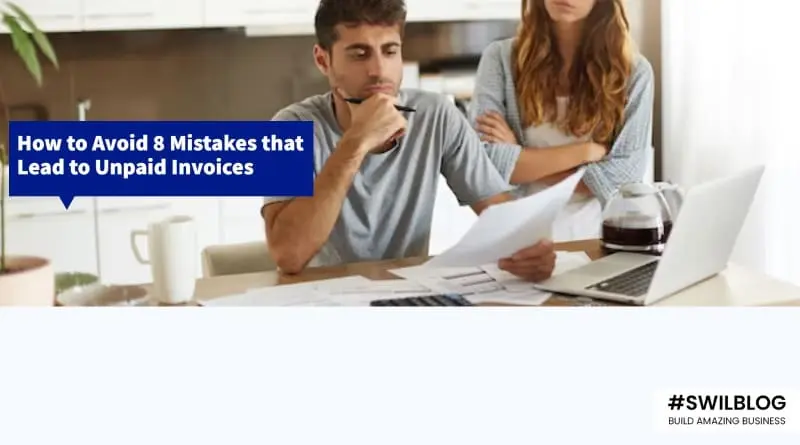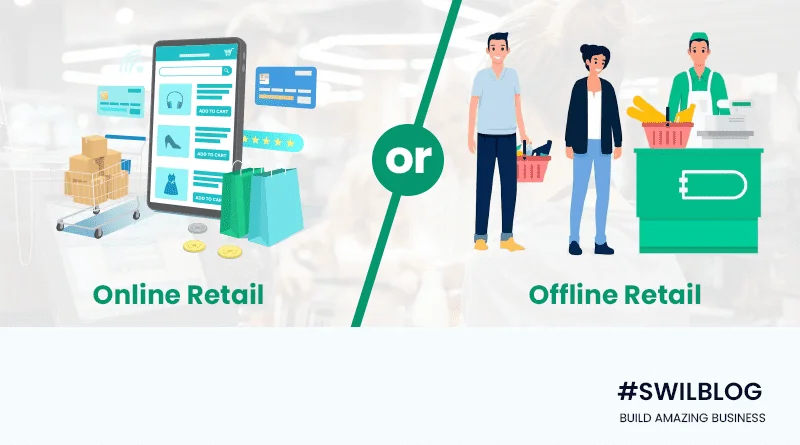It’s crucial to be aware of the best practices and typical errors when handling unpaid invoices, regardless of whether you manage a small business or are an individual working on your projects.
Ignoring a late payment can undermine your business relationships, harm your reputation, and result in future unpaid invoices. Unpaid invoices may frequently be avoided, and you can take steps to have them paid sooner than usual or eliminate them.
To handle your unpaid invoice risk as efficiently as possible, you should avoid the eight frequent mistakes that small businesses make regarding outstanding invoices. When dealing with unpaid invoices, be sure you understand how to prevent the following eight invoice mistakes always to be paid on time and maintain pleased clients.
How to Avoid Unpaid Bills
Unpaid bills may destroy a business from within, which is why it’s critical to act promptly and take the following procedures to prevent unpaid invoices:
1. Conduct a credit and background check
It’s usually a good idea to do background checks on your consumers to determine their trustworthiness and dependability. Credit and background checks will provide you with a wealth of information on prospective clients, such as:
- Verification of identity
- Bankruptcies
- Credit checks
- Criminal history
You may utilize a variety of agencies to do credit and background checks. If you engage with a collection agency, be sure they are also doing these checks.
2. Send bills in advance
Send invoices and estimates before performing any services so that the final cost does not catch your client off guard. You can utilize a free program to make detailed, professional-looking invoices. Remember that the more data and information you provide in your invoice, the more likely you will get paid.
3. Get a contract signed
Before you deliver services to your consumers, have them sign a contract so they are legally compelled to pay you. A personal guarantee or a security agreement might be used to accomplish this.
A personal guarantee is a pledge given by an individual guarantor to refund the debt owed by one company to another when acquiring their goods if the business purchasing the thing cannot pay its obligation.
A personal guarantee ensures that you will be paid for the products or services you sell to a company if that firm runs into financial difficulties and cannot pay you. You might also arrange a security agreement, which allows you to put a claim on the equipment or items sold in the case of a default or bankruptcy filing.
4. Ensure that your payment conditions are explicit
If the wording on your invoice or contract is unclear, you may be putting yourself in jeopardy. Determine a time range or deadline by which you want the invoice paid and include it in your documentation.
You may also provide a variety of payment choices to make it as simple as possible for your consumer to pay their invoice.
5. Gather contact information in case of emergency
Always collect contact information from your consumers, such as their name, e-mail address, phone number, and postal address. Some businesses may collect contact information from a third party and your customer’s contact information.
If you are unable to contact the client, you may be able to get the third-party contact to collect payment for your invoice.
6. Form solid customer ties
Understand your client so you know who or what entity is accountable for paying for your services. Inquire about their standard payment method or policy. The more your clients know you, the more difficult it will be for them to abandon you with unpaid debts. Aside from that, having significant ties with your consumers is an excellent business.
7. Keep meticulous records
Maintain thorough records of every transaction and communication between you and your client. Customers’ letters or emails may acknowledge the culpability in the issue. Phone calls should be followed up by a letter or email verifying the call.
Apps will assist you in keeping track of all revenue, costs, clients, and invoices so that you are paid for your labor and your firm is financially healthy. Furthermore, if you are ever audited, you will have all the information required to assist with the audit.
8. Always follow through
Consistent follow-up with the buyer before the account is due has long been considered essential to preventing difficulties from escalating into disputes that cause payment delays. When the items should have arrived, contact the buyer and inquire whether the cargo was received on schedule, if the quality is okay, and if your invoice is precise and accurate.
These customer care connections remind the buyer of their commitment and alert you to any prospective difficulties. This also demonstrates to the consumer that you are attentive to your company and will move quickly to ensure payment.
Conclusion
According to statistics, you are less than 75% likely to collect the account 90 days after it is past due. Every month, the proportion decreases, and after 12 months, there is only a 25% chance of collection.
Instead of losing out on payments, eliminate unpaid bills by obtaining precise client information, optimizing your invoicing process, and putting measures in place to protect you and your organization.







